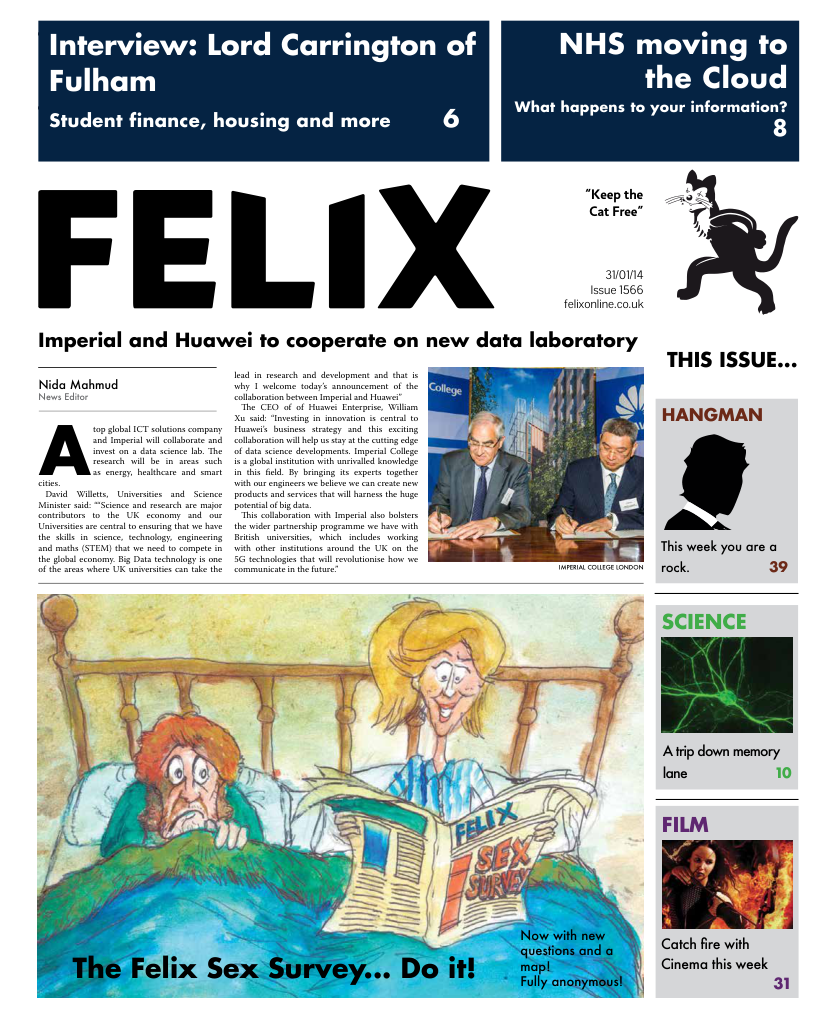Care Data: Live saving tool or invasion of privacy?
The NHS has recently dispatched a leaflet titled “Better information means better care” to everyone in England.
The NHS has recently dispatched a leaflet titled “Better information means better care” to everyone in England. The leaflet describes a new initiative, care data, in which patient’s data from GP records will be extracted and shared with the Health and Social Care Information Centre. The NHS hopes to roll out care data in the summer and for the first time in British medical history there will be an anonymised medical database which will include details of every NHS patient – unless you opt out. The database is hoped to achieve better patient care and efficiency, but a recent risk assessment published by NHS England shows that Patients “may lose trust” in the confidential nature of the health service.
The risk assessment claims if the care data scheme is to go ahead then this runs the risk of damaging patient trust in the NHS and making information vulnerable to hacking. There is also a “small residual risk” that patients will be re-identified. The assessment states that these risks can be mitigated by allowing patients to opt out by contacting their GP. The risk assessment concludes that the benefits outweigh the risk. The care data initiative will support economic growth by turning the UK into a “global centre for life sciences and health research” and creating a “vibrant App marketplace.”
“The most valuable thing we have in health and social care is data,” said executive medical director of the NHS Information Centre for health and social care, Dr Mark Davies, at the healthcare efficiency through technology conference in October.
Supporters of care data insist that this kind of technology is essential in order to provide an excellent standard of healthcare. Large volumes of health records can transform the way in which diseases are treated and managed. This is hoped to ultimately save lives because it will allow researchers to track the impact of drugs and surgery on patients.
Privacy experts warn the trouble lies with the data being sold off to drug and insurance companies, with patients not being able to tell who has their medical records or to what use their data will be put. Organisations can apply to the new Health and Social Care Information Centre (HSCIC) to gain access to the database and if an application is approved then the organisation will have to pay to access the data. A process known as “pseudonymisation” occurs where some personal identifiers will be removed, but not enough to make the information completely anonymous. The English database of medical data will also include NHS numbers, date of birth, postcode, ethnicity and gender. Critics fear that this data can be pieced together with insurers, pharmaceutical groups and other health sector companies own medical data, essentially re-identifying certain patients.
A Pulse survey conducted last week with nearly 400 GP respondents found a deep divide between those who support the care data scheme and those who don’t, with 41% saying they intend to opt-out, 43% saying they would not opt-out and 16% undecided.





